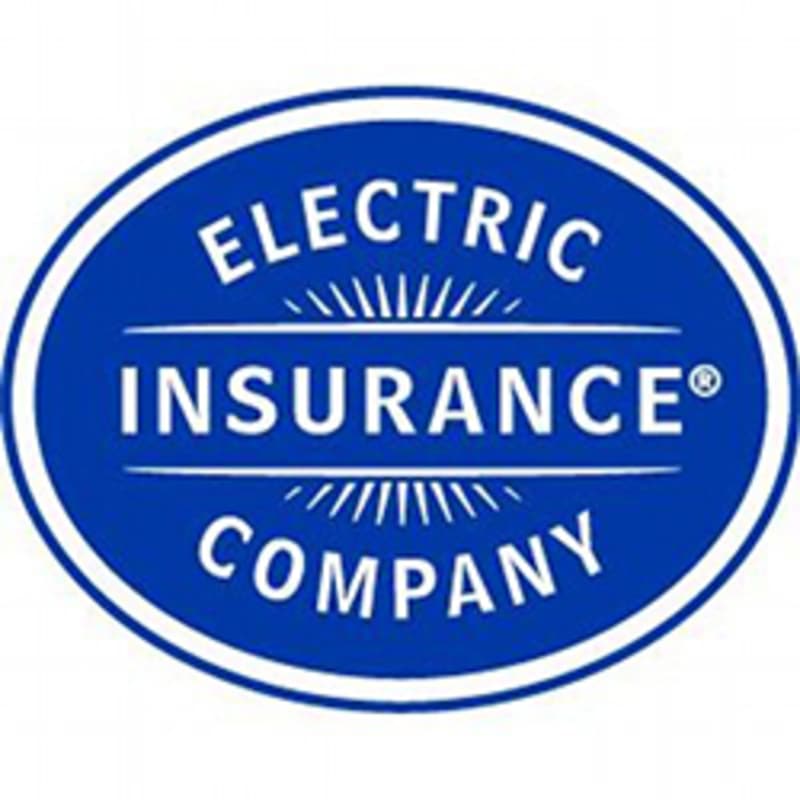Electric insurance sets the stage for this enthralling narrative, offering readers a glimpse into a story that is rich in detail and brimming with originality from the outset. As the electric vehicle (EV) market surges forward, the need for specialized insurance tailored to these cutting-edge automobiles has become increasingly critical. Electric insurance goes beyond traditional car insurance, addressing the unique risks and complexities associated with EVs.
This comprehensive guide delves into the world of electric insurance, exploring its nuances, benefits, and future implications. We’ll examine the factors that influence EV insurance premiums, discuss essential coverage options, and provide practical tips for finding the right insurance policy. Join us as we navigate the evolving landscape of electric insurance and uncover its potential to safeguard your EV investment.
Factors Influencing Electric Vehicle Insurance Premiums
Electric vehicles (EVs) are becoming increasingly popular, and as a result, insurance companies are adjusting their rates to reflect the unique characteristics of these vehicles. Several factors influence the cost of EV insurance, including the vehicle’s features, the driver’s profile, and the overall risk associated with driving an EV.
Battery Range
The battery range of an EV is a significant factor influencing insurance premiums. EVs with longer ranges generally have lower insurance costs. This is because longer ranges translate to fewer charging stops, reducing the likelihood of accidents due to range anxiety.
Insurance companies often consider the range of an EV when calculating premiums.
For instance, a Tesla Model S with a range of over 300 miles might have lower insurance premiums than a Nissan Leaf with a range of around 150 miles.
Charging Infrastructure
The availability and accessibility of charging infrastructure can also impact EV insurance premiums. EVs require access to charging stations, and limited charging infrastructure can increase the risk of being stranded.
Insurance companies may offer discounts to drivers who have access to home charging or who live in areas with extensive public charging networks.
Conversely, drivers who rely on public charging stations in remote areas might face higher premiums due to the increased risk of being stranded.
Safety Features, Electric insurance
EVs often come equipped with advanced safety features that can reduce the likelihood of accidents. These features include automatic emergency braking, lane departure warning, and adaptive cruise control.
Insurance companies often offer discounts to drivers of EVs with these features.
For example, a Tesla Model 3 with Autopilot, a suite of advanced safety features, might qualify for a lower insurance premium compared to a comparable gasoline-powered vehicle without these features.
Driver Demographics and Driving History
Similar to traditional vehicles, the driver’s demographics and driving history significantly influence EV insurance premiums.
Insurance companies consider factors such as age, gender, driving experience, and accident history when determining rates.
Younger drivers with limited experience may face higher premiums than older drivers with a clean driving record. Additionally, drivers with a history of accidents or traffic violations may also see higher premiums.
Electric Vehicle Insurance Coverage Options: Electric Insurance
Electric vehicle insurance offers specific coverage tailored to the unique features and potential risks associated with these vehicles. Understanding the various coverage options available can help EV owners protect their investment and ensure they have adequate financial protection in case of an accident or other unforeseen events.
Comprehensive and Collision Coverage for Electric Vehicles
Comprehensive and collision insurance are essential components of most car insurance policies. They provide financial protection for damage to your vehicle caused by various incidents. Here’s how these coverages apply to electric vehicles:
- Comprehensive Coverage: This coverage protects against damage to your EV caused by events other than accidents, such as theft, vandalism, fire, natural disasters, or falling objects. It can cover repairs or replacement costs for the vehicle’s body, interior, and even the electric battery, depending on the policy terms.
- Collision Coverage: This coverage protects against damage to your EV resulting from a collision with another vehicle or object. It can cover repairs or replacement costs for the vehicle’s body, interior, and electric battery, depending on the policy terms. In case of a total loss, the insurance company will pay the actual cash value of the vehicle, which is typically its market value at the time of the accident.
Specialized Coverage for Battery Replacement and Charging Equipment
Electric vehicles have a unique component – the battery – that requires specialized coverage. Some insurance companies offer additional coverage options for battery replacement and charging equipment.
- Battery Replacement Coverage: This coverage helps cover the cost of replacing a damaged or faulty electric vehicle battery. It is typically offered as an optional add-on to a standard comprehensive or collision insurance policy. The coverage amount and deductible may vary depending on the insurer and the specific policy terms.
- Charging Equipment Coverage: This coverage provides protection for damage to your home charging station or public charging equipment. It may cover repairs or replacement costs for the charging station itself, as well as any damage to your property caused by the charging equipment. This coverage is usually offered as an optional add-on to a standard comprehensive or collision insurance policy.
Benefits of Roadside Assistance for Electric Vehicle Owners
Roadside assistance is a valuable benefit for all vehicle owners, but it is particularly important for electric vehicle owners. Electric vehicles have a unique set of potential issues that traditional roadside assistance services may not be equipped to handle.
- Battery Jump-Starts: Traditional jump-starts are not effective for electric vehicles, as they require a different type of jump-start. Roadside assistance services for electric vehicles can provide specialized jump-starts that use a portable charging device to jump-start the battery.
- Towing to a Certified Repair Facility: Electric vehicles require specialized repair facilities with technicians trained in EV technology. Roadside assistance services for electric vehicles can ensure your vehicle is towed to a certified repair facility that can handle EV repairs.
- Battery Delivery: In case of a complete battery failure, roadside assistance services can arrange for a replacement battery to be delivered to your location. This can save you the inconvenience and cost of having to transport the battery yourself.
Liability Coverage for Electric Vehicle Accidents
Liability coverage is a crucial component of any car insurance policy, including electric vehicle insurance. It protects you financially if you are at fault in an accident and cause injury or damage to others.
- Bodily Injury Liability: This coverage helps pay for medical expenses, lost wages, and other damages incurred by the other driver or passengers in an accident if you are at fault.
- Property Damage Liability: This coverage helps pay for repairs or replacement costs for the other driver’s vehicle or property if you are at fault in an accident.
Finding the Right Electric Vehicle Insurance

Finding the right electric vehicle insurance can be a daunting task, as there are many factors to consider. This includes comparing insurance quotes from different providers, understanding coverage options, and knowing how to negotiate the best premiums. This section provides information on these aspects to help you make an informed decision.
Comparing Insurance Quotes
Before choosing an insurance provider, it’s crucial to compare quotes from multiple companies. This allows you to identify the best value for your specific needs. Here’s a table comparing quotes from different providers, highlighting key features and costs:
| Insurance Provider | Coverage | Deductible | Premium |
|—|—|—|—|
| Provider A | Comprehensive & Collision | $500 | $100/month |
| Provider B | Liability Only | $1,000 | $75/month |
| Provider C | Comprehensive & Collision | $1,000 | $90/month |
This table showcases a hypothetical comparison of insurance quotes from different providers. It highlights key features such as coverage types, deductibles, and monthly premiums. Remember that actual quotes may vary depending on your individual circumstances, including vehicle model, driving history, location, and coverage preferences.
Obtaining an Electric Vehicle Insurance Quote
The process of obtaining an electric vehicle insurance quote involves a series of steps. Here’s a flowchart outlining these steps:
Flowchart:
1. Gather Information: Begin by gathering essential information, such as your driver’s license, vehicle details, and desired coverage levels.
2. Contact Insurance Providers: Contact several insurance providers, either online, by phone, or in person.
3. Provide Information: Provide the required information to each provider to receive a personalized quote.
4. Compare Quotes: Compare the quotes from different providers, considering factors like coverage, deductibles, and premiums.
5. Choose Provider: Select the provider that offers the best value and coverage for your needs.
6. Purchase Policy: Purchase the chosen insurance policy and finalize the payment arrangements.
This flowchart provides a step-by-step guide to obtaining an electric vehicle insurance quote. By following these steps, you can ensure a smooth and efficient process.
Negotiating Insurance Premiums
Negotiating insurance premiums can help you save money on your electric vehicle insurance. Here are some tips for negotiating premiums:
– Shop Around: Compare quotes from multiple providers to identify the best deals.
– Consider Bundling: Ask about discounts for bundling your auto insurance with other policies, such as homeowners or renters insurance.
– Improve Your Driving Record: Maintain a clean driving record to qualify for good driver discounts.
– Install Safety Features: Consider installing safety features like anti-theft devices or advanced driver-assistance systems to qualify for discounts.
– Pay in Full: Inquire about discounts for paying your premium in full upfront.
– Negotiate Deductibles: Consider increasing your deductible to lower your premium.
Finding Reputable Electric Vehicle Insurance Providers
Finding reputable electric vehicle insurance providers is crucial for ensuring reliable coverage and excellent customer service. Here are some resources for finding reputable providers:
– Insurance Comparison Websites: Websites like Insurance.com, NerdWallet, and Policygenius allow you to compare quotes from multiple providers.
– Consumer Reports: Consumer Reports provides ratings and reviews of insurance providers based on customer satisfaction and claims handling.
– J.D. Power: J.D. Power conducts surveys and publishes rankings of insurance providers based on customer satisfaction and claims handling.
– Recommendations: Ask friends, family, and colleagues for recommendations on reputable insurance providers.
By utilizing these resources, you can find reputable electric vehicle insurance providers that meet your specific needs and provide excellent coverage.
Final Conclusion
As the electric vehicle revolution gains momentum, the importance of electric insurance continues to rise. Understanding the specific risks and coverage options associated with EVs is crucial for ensuring peace of mind and protecting your investment. By embracing the insights and resources presented in this guide, you can confidently navigate the world of electric insurance and secure the best protection for your electric vehicle.
Electric insurance is a specialized type of coverage that addresses the unique risks associated with electric vehicles. While it often overlaps with traditional auto insurance, there are specific aspects to consider, like battery damage and charging station liability. If you’re looking for auto insurance in New Jersey, auto insurance new jersey can help you find the right policy to protect your electric vehicle and ensure peace of mind.
With the increasing popularity of electric cars, understanding the specific coverage options available is crucial for both drivers and insurers alike.
